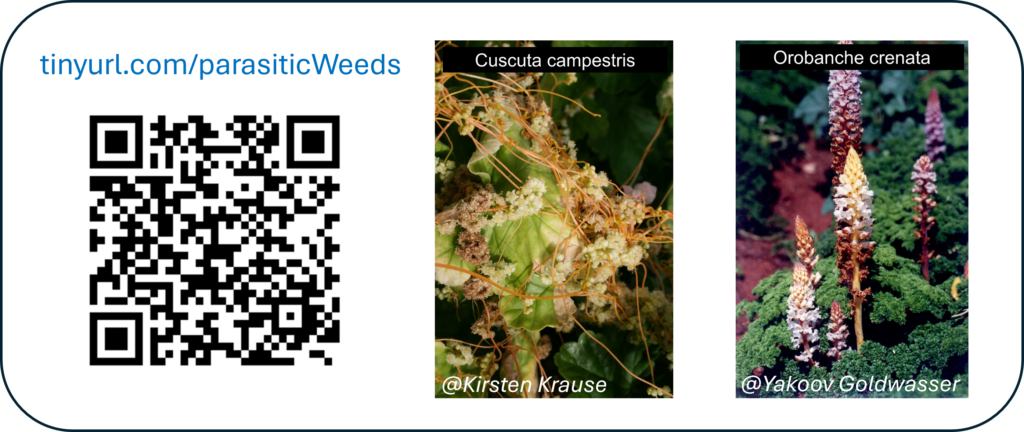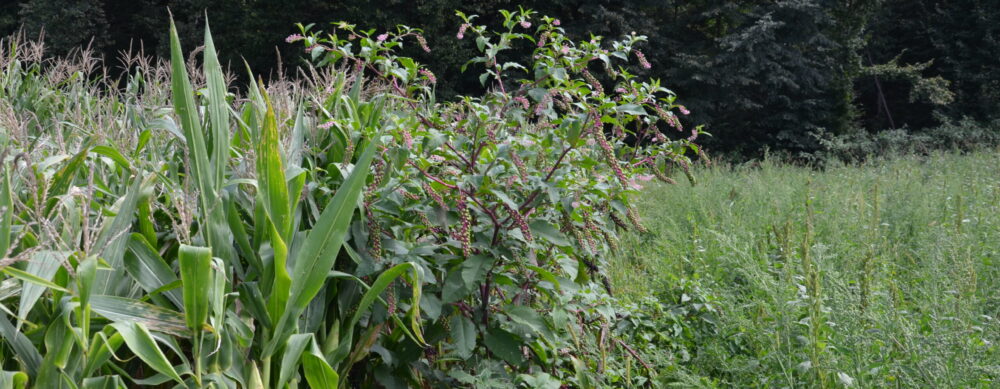Parasitic weeds pose a unique threat to arable crops – they tap directly into their host plants to extract water and nutrients, often leading to substantial yield losses. Two species that are already causing problems in warmer regions may become increasingly relevant for Central European farming systems:
- Field dodder (Cuscuta campestris): A leafless, twining plant that parasitizes legumes like alfalfa or clover. It connects tightly to its host and spreads via long-lived seeds, making it difficult to control.
- Crenate broomrape (Orobanche crenata): A root parasite targeting crops such as peas, faba beans, and other legumes. Its seeds germinate only in the presence of host plants and can remain viable in the soil for many years.

With climate change and shifting cropping patterns, such species could become more common in Austria and surrounding regions. To better assess their current or potential distribution, colleagues from the University of Greenwich (United Kingdom) are conducting a short survey: http://tinyurl.com/parasiticweeds
Danke für Ihre Mithilfe!
